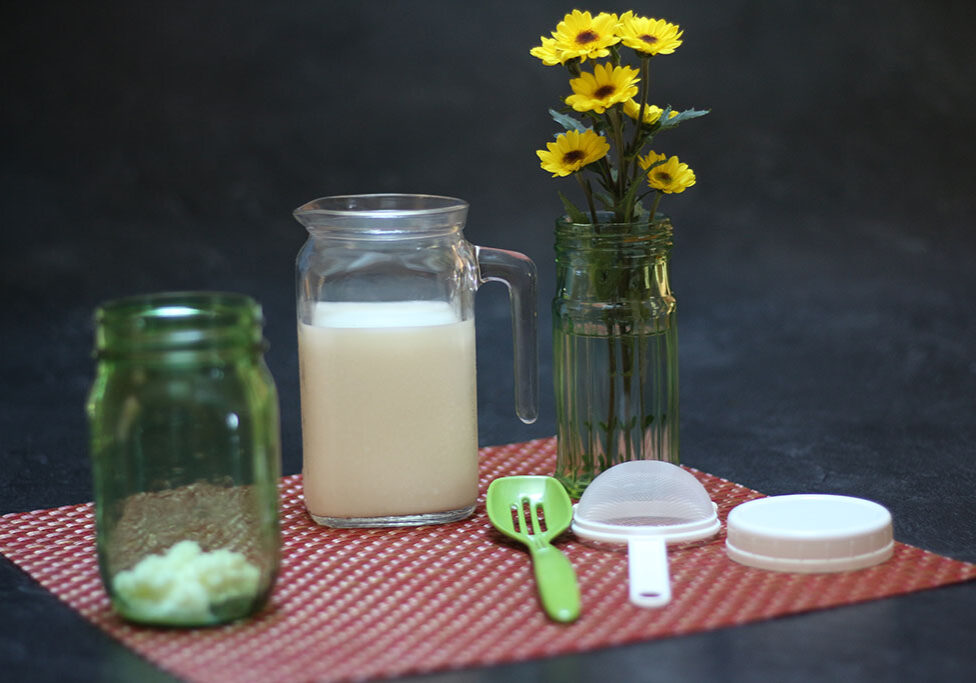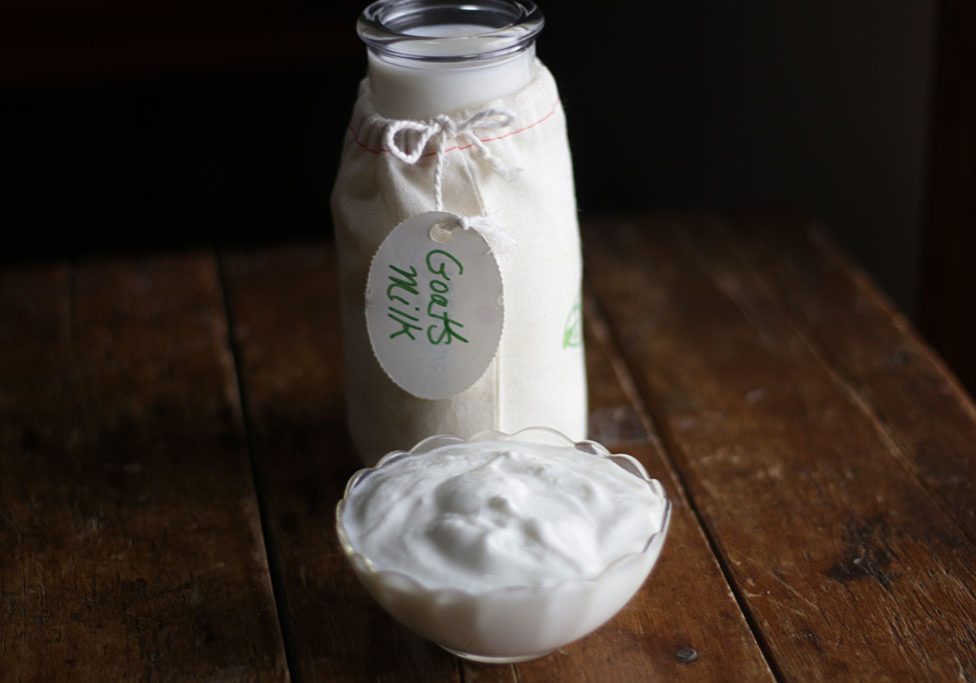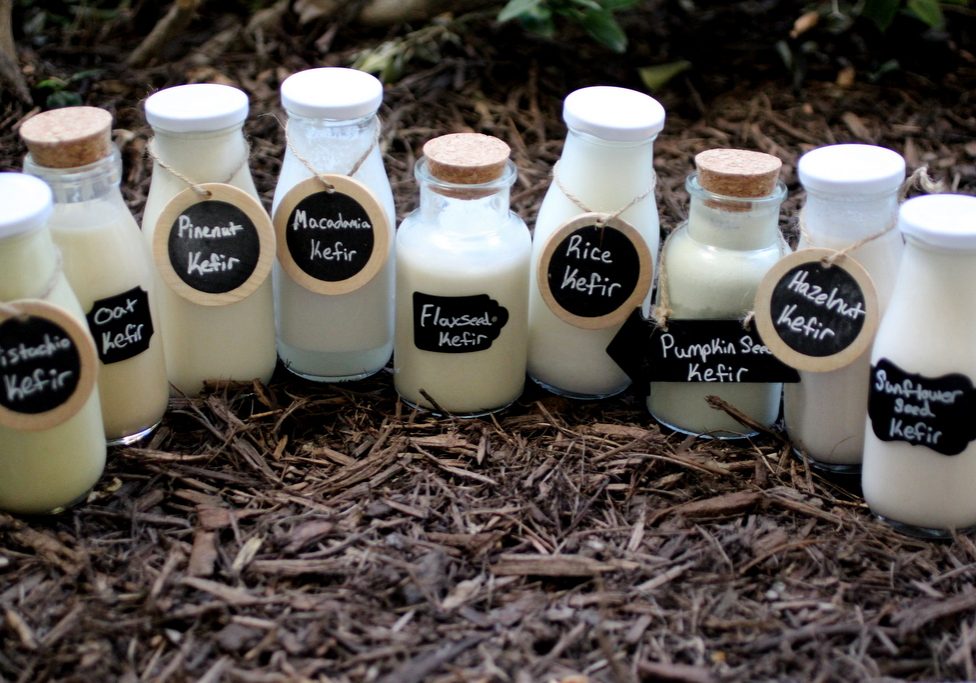
Winter Kefir
Making Kefir In The Winter
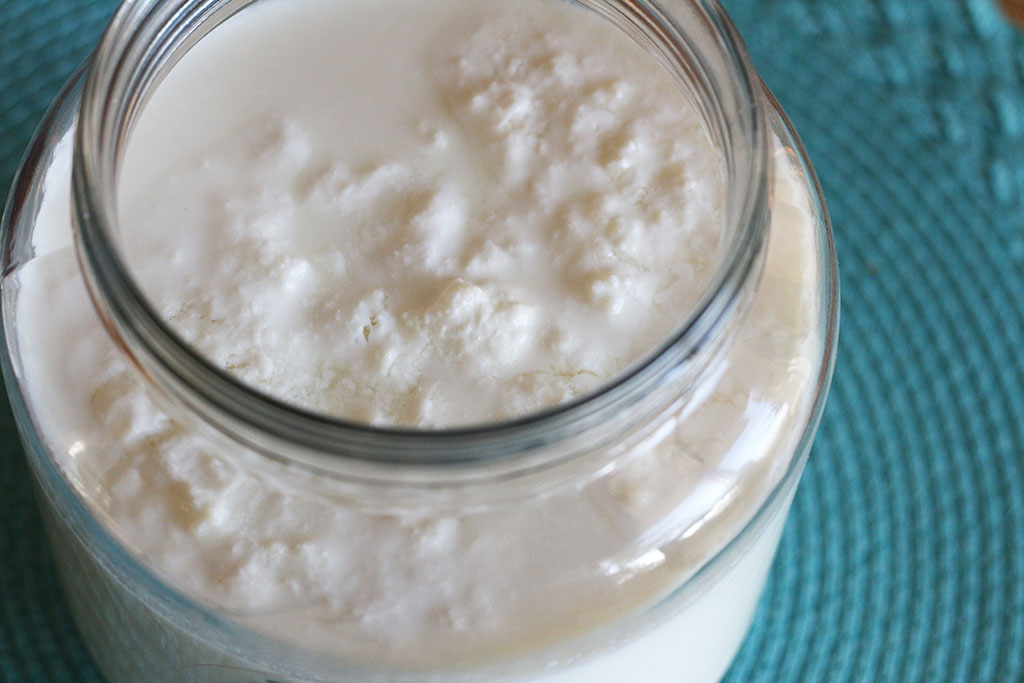
I love winter kefir! It’s often creamier and thicker than summer kefir. Kefir acts differently in the winter than in the warmer months of the year due to cooler temperatures that make it ferment more slowly.
Here are my best and most helpful tips for making kefir in the winter when temperatures drop not only outside, but inside your home as well. If your house gets below 75°F, these tips can be a lifesaver!
9 Tips For Winter Kefir
| 1. Move the kefir to a warmer room. You don't have to keep kefir in your kitchen if you have a warmer area. |
| 2. You can test the temperature on top of your fridge to see if it's warmer but not above 75°F. Remember that heat rises! Place the kefir on a towel so it won't get too much heat on the bottom of the jar which can hurt the grains. |
| 3. Double or even triple the kefir grains or decrease the amount of milk. This gives the kefir more probiotic power which helps it to finish faster. |
| 4. Let it ferment longer. Kefir ferments in 24 hours at 69-73°F; but if the temps are lower, it can take an extra half day to a whole day (total 48 hours of fermentation) to really turn tart and kefir-like, and perhaps longer if the temps are lower than 64°F. |
| 5. If you happen to have a spare bedroom or office, use a space heater to heat the room to around 70-73°F. You can keep your kombucha jar (and second ferments) in that room too! |
| 6. Use a wider jar. We used to live in a house that had a lot of temperature fluctuations, and at night the temperature would drop down to 64°F while daytime temperatures were about 70°F. My kefir grains still fermented, it just took longer. I started using a jar that was wider and fatter and the grains seemed to like this better. It gave them more surface area and they spread out in the jar. This resulted in a creamy, thick kefir. |
7.  I just got a New Fermentation Belt so you can control the temperature and keep your kefir at the perfect temperature. You can set it at 68°F. Perfect for 1/2 gallon glass jars. Kefir does not like to be artificially heated at higher temps and it can damage or kill your grains. I just got a New Fermentation Belt so you can control the temperature and keep your kefir at the perfect temperature. You can set it at 68°F. Perfect for 1/2 gallon glass jars. Kefir does not like to be artificially heated at higher temps and it can damage or kill your grains. |
8.  DON'T use Prebio Plus. This gives it extra food and it will take even longer to ferment. If you want to add Prebio Plus, add it after it has fermented. You only need a pinch for a quart. DON'T use Prebio Plus. This gives it extra food and it will take even longer to ferment. If you want to add Prebio Plus, add it after it has fermented. You only need a pinch for a quart. |
9.  Kefir doesn’t like to be too warm. At 78°F it will start to separate into whey and curds and this isn’t bad, it's just less appetizing. Check out my article the Thick and Thin of Kefir for more info and help. Kefir doesn’t like to be too warm. At 78°F it will start to separate into whey and curds and this isn’t bad, it's just less appetizing. Check out my article the Thick and Thin of Kefir for more info and help. |
Kefir For Cold and Flu Season
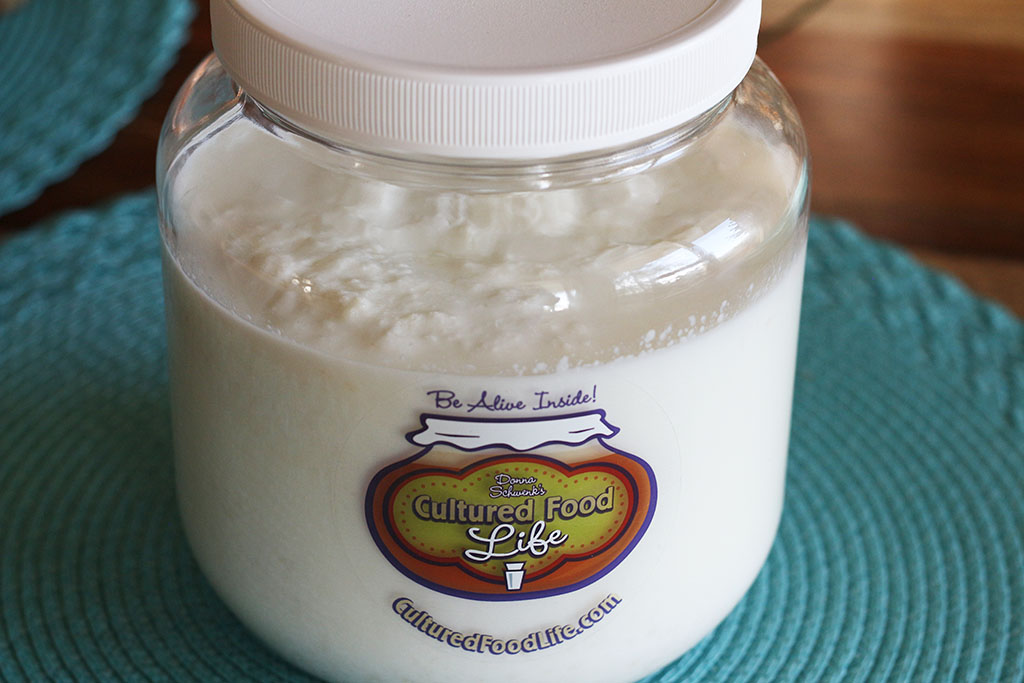
Your Immune System Needs Kefir
In the winter, you need your immune system strong since this is cold and flu season. Kefir works wonderfully with your immune system to strengthen and protect it. About eighty percent of your body’s immune cells live in your gut or intestine. This is roughly 100 trillion immune cells that make up your gut microbiome and play a big role in the strength of your immune system. The local immune system of the gut has two main functions: to protect against infections and to protect against the uptake of and/or harmful immune response to food antigens.
Having a healthy, diverse gut microbiome makes it difficult for illness-causing bacteria and viruses to take hold. If you have a weak, sparsely populated microbiome with a shortage of “good” bacteria, it can leave you open to illnesses — like colds and the flu.
The intestinal immune system contains more antibody-producing cells than the rest of the body put together. The fluids that come from the digestive system (such as mucus and saliva) are as rich as breast milk in both health-supporting and disease-preventing factors. Our immune systems make antibodies that fight bacteria, viruses, and toxins. One of the most common antibodies, called secretory immunoglobulin A (IgA) is found in mucus membranes lining the nose, windpipe, and lungs. IgA acts as the body’s warning and security system. When IgA levels are adequate, these antibodies can prevent cold and flu viruses from entering the body through the nasal mucus and respiratory tract. Having enough IgA is extremely important because these special antibodies go after both viral and bacterial invaders in your upper respiratory tract, deactivating them and allowing the immune system to destroy them. Having enough IgA can prevent a cold or flu from getting a foothold in your respiratory tract because once a virus infects cells it can replicate and wreak havoc. Kefir is loaded with 50+ good bacteria and good yeasts. It's one of the best ways to help your immune system stay strong.
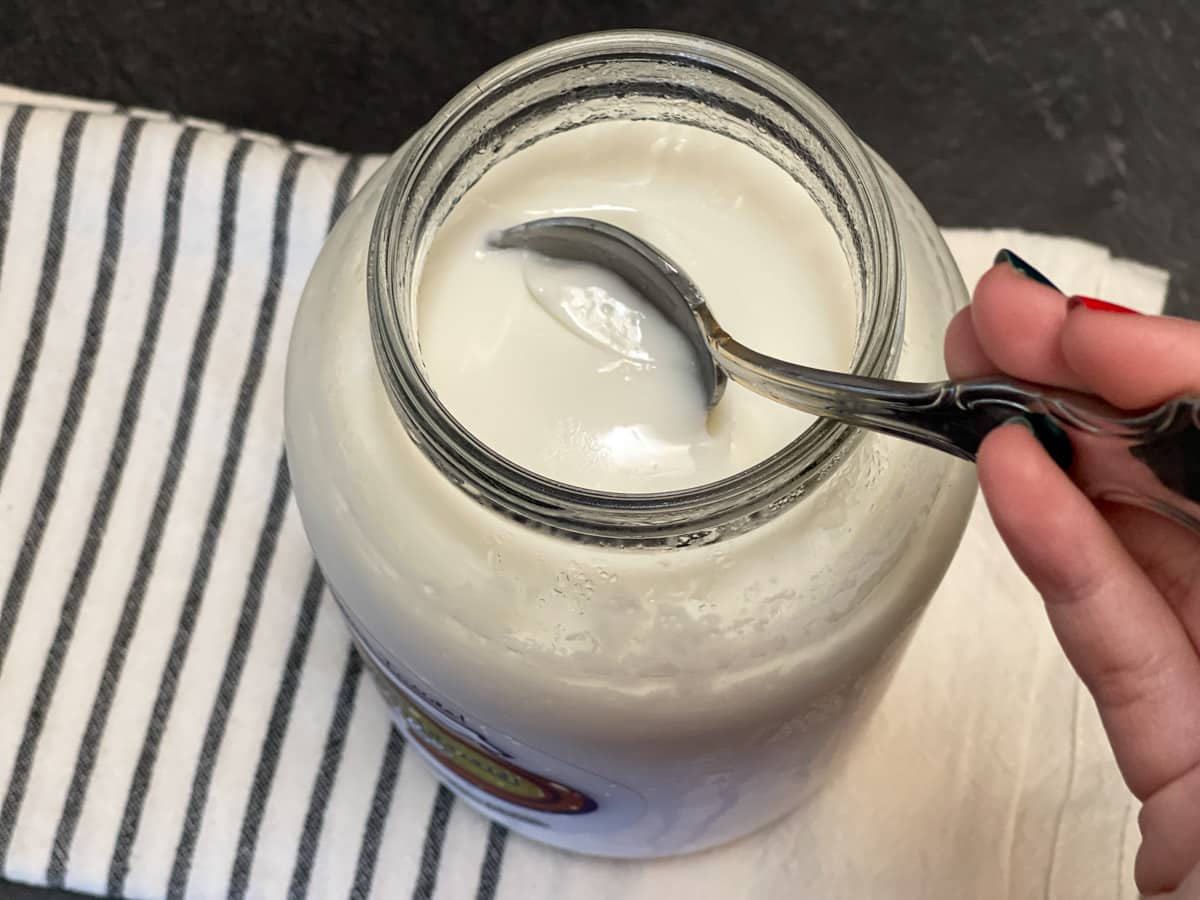

Check Out Our FAQs About Kefir
We get lots of questions every day about kefir. As the seasons change and your kefir grains grow from making kefir, your kefir will change too. It might grow faster or slower or over-ferment. The taste can change to be more tart or less tart and we can help you with all of it. Kefir is a living organism and needs a little attention just like a pet and it has a mind of its own! Check out our FAQs
Recipes for Kefir
Listen To My Podcast
Winter kefir is different than summer kefir due to the temperatures cooling. It is my favorite kefir since it's extra creamy. Check out the podcast to learn more tips and tricks!
Are you on the list?
Sign up today and I'll send you my free Getting Started Guide!
Each week I'll send you updates, tips, recipes, and more! You might even be a winner of my weekly giveaway! (starter cultures, memberships, and more!)
Come be a part of my cultured food family!

